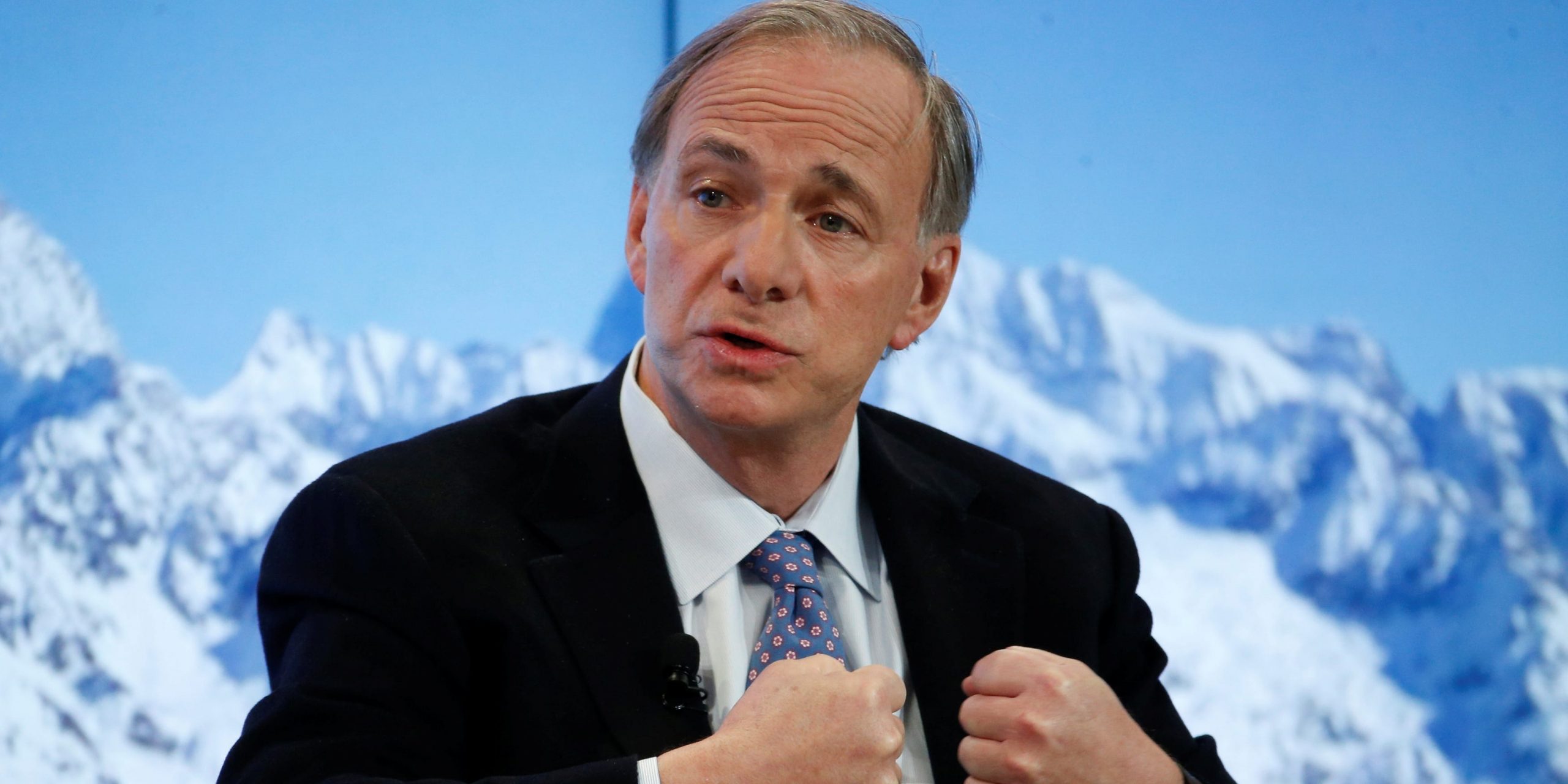
- Bridgewater boss Ray Dalio said in a recent blog post that there are "classic bubble dynamics" across the market.
- He said the economics of bond investing in particular were "stupid," and warned a sell-off could be coming.
- Dalio recommended "a well-diversified portfolio of non-debt and non-dollar assets."
- Sign up here for our daily newsletter, 10 Things Before the Opening Bell.
Bridgewater Associates boss Ray Dalio does not like what he sees when he looks out across the market.
In a major blog post on Monday, he said there are "classic bubble dynamics in so many different assets."
Dalio, ranked by LCH Investments as the best-performing hedge fund manager of all time, said a long-term debt cycle that has seen investors gorge on bonds may be about to end, which could be "traumatic for most everyone."
The founder of $150 billion fund Bridgewater spoke for many investors who are concerned about the recent jitters in the bond market continuing and becoming destabilizing.
He also said that the "economics of investing in bonds… has become stupid," while sharing some strategy ideas to combat low returns. And he said the US may become "inhospitable to capitalists."
Here are 12 of the key quotes:
Market bubbles
1. "There's just so much money injected into the markets and the economy that the markets are like a casino with people playing with funny money. They're buying all sorts of things and pushing yields on everything down. Now you have stocks that have gone up, and you have classic bubble dynamics in so many different assets."
2. "The increased supply of money injected into the system bids up investment asset prices and can cause financial market bubbles even when actual economic conditions are still weak."
3. "Bonds have been in a 40-year bull market that has rewarded those who were long and penalized those who were short, so the bull market has produced a large number of comfortable longs who haven't gotten seriously stung by a price decline. That is one of the markers of a bubble."
Bond market woes
4. "The economics of investing in bonds (and most financial assets) has become stupid…. if you buy bonds in [the US, Europe, Japan or China] now you will be guaranteed to have a lot less buying power in the future."
5. "If bond prices fall significantly that will produce significant losses for holders of them, which could encourage more selling."
6. A major bond-market sell-off would be "traumatic for those who are holding the debt assets and traumatic for most everyone though it eventually reduces the ratios of debt and debt service to incomes. It is also traumatic for capital markets, capitalism, and economies. During this credit/debt collapse people realize that they don't have as much buying power as they thought and financial and economic conditions worsen."
Major policy changes
7. "If history and logic are to be a guide, policy makers who are short of money will raise taxes and won't like these capital movements out of debt assets and into other storehold of wealth assets and other tax domains so they could very well impose prohibitions against capital movements to other assets (e.g. gold, Bitcoin, etc.) and other locations. These tax changes could be more shocking than expected."
8. "The United States could become perceived as a place that is inhospitable to capitalism and capitalists. Though this specific wealth tax bill [proposed by some Democrats] is unlikely to pass this year the chances of a sizable wealth tax bill passing over the next few years are significant."
Investment strategy
9. "Because I believe that we are in the late stage of this 'big debt cycle'..., I believe cash is and will continue to be trash (i.e. have returns that are significantly negative relative to inflation) so it pays to a) borrow cash rather than to hold it as an asset and b) buy higher-returning, non-debt investment assets."
10. "Rather than get paid less than inflation why not instead buy stuff-any stuff-that will equal inflation or better? We see a lot of investments that we expect to do significantly better than inflation."
11. "I believe a well-diversified portfolio of non-debt and non-dollar assets along with a short cash position is preferable to a traditional stock/bond mix that is heavily skewed to US dollars."
12. "I also believe that assets in the mature developed reserve currency countries will underperform the Asian (including Chinese) emerging countries' markets. I also believe that one should be mindful of tax changes and the possibility of capital controls."